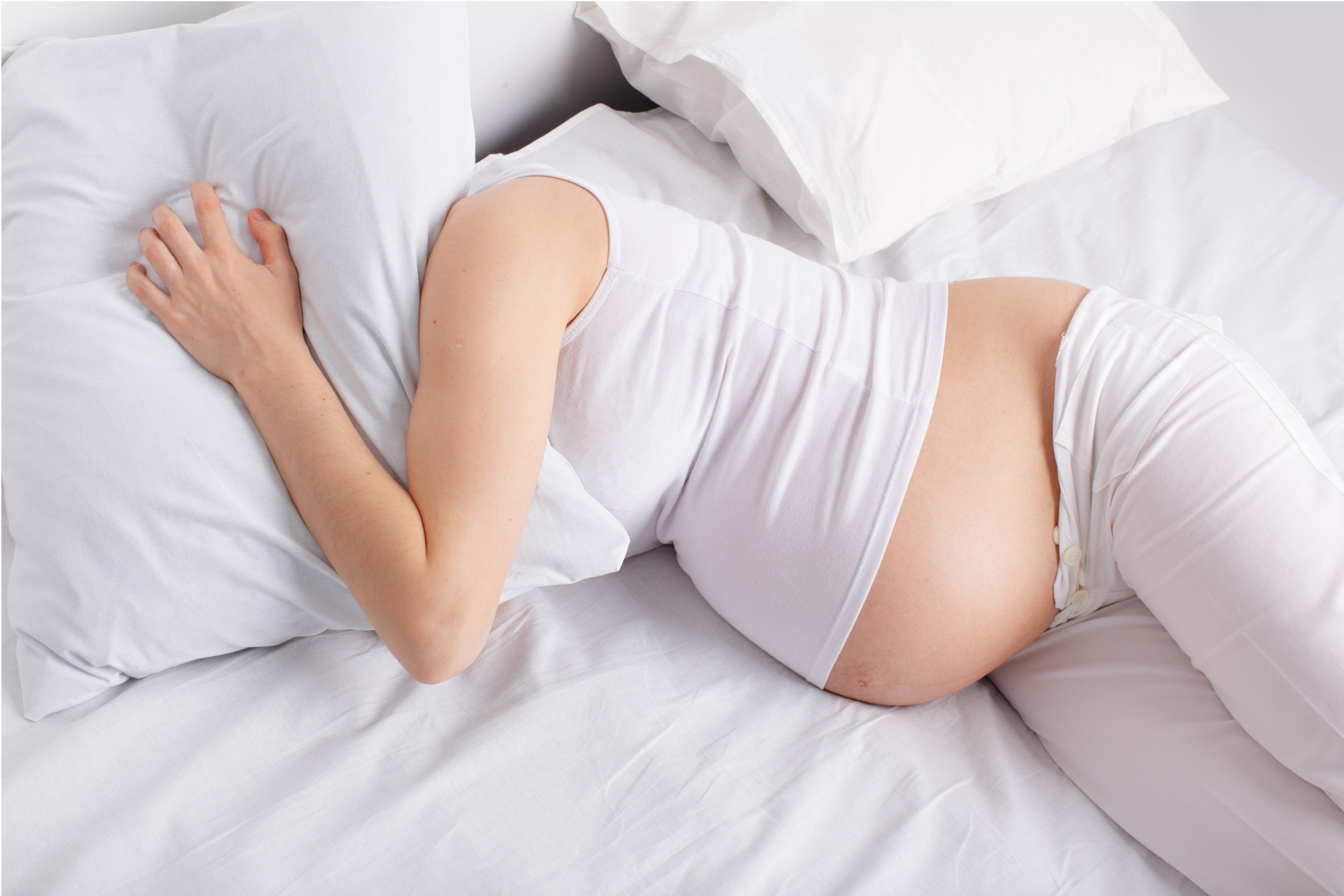
08 Feb Confined By Pregnancy
Emma Williams writes of her experience with hyperemesis gravidarum, an oft-misunderstood condition in which pregnant women experience relentless nausea and vomiting.
I had heard about morning sickness and wasn’t looking forward to it happening to me. At six weeks pregnant, I felt fantastic and thought I might have avoided it. Then I started to feel queasy. A few weeks later, the throwing up began and quickly increased in frequency to about every hour from the moment I woke until I went to sleep. I recall wishing away the day so I could sleep and rest from the constant feeling of sickness. I didn’t realise I was experiencing hyperemesis gravidarum, a condition that causes severe nausea and vomiting in pregnant women, sometimes for their entire pregnancy.
Things got worse until I reached the point where I was waking during the night to throw up. The slightest smell would trigger a bout of vomiting, and the range of things I was able to eat diminished daily. The metallic taste in my mouth became so extreme I was unable to appreciate any flavours, and merely sipping water made me throw up uncontrollably. On the days I felt better, I would force myself out of the house to the local shops in search of food I could tolerate. Those attempts would often end in me rushing to the nearest public toilet to throw up or, embarrassingly, throwing up in the gutter in public view. I soon became a prisoner in my own home. Every day I battled with fierce determination to keep the smallest amount of food and drink down. After all, I had a baby growing inside me, who I was desperate to feed. I sought out possible cures and tried to approach each day with positivity so my baby didn’t sense my despair.
When I reached the point at which my husband would leave for work at 7 am and return at 7 pm to find me in the same position by the toilet, crying from frustration and exhaustion and unable to pull myself up off the floor, he pleaded with me to go to the hospital. The anti-sickness medication I had been prescribed by the GP no longer had any effect, even if I was able to keep it down for longer than an hour. After a couple of brief visits to my local public hospital, where I was given anti-sickness medication intravenously and sent home, only to return two days later, my husband urged me to see my obstetrician. He organised for me to be admitted to hospital for a week, as my weight was decreasing and I was seriously dehydrated.
A few days after that stay, I was back again, having not been able to keep anything down. By this time, I was 14 weeks pregnant and looking gaunt, hardly the blossoming picture of pregnancy I’d imagined. After another week in the hospital, my weight had dropped even further, and the IV medication was having little effect on the relentless vomiting. I’d reached the point of malnutrition, so my obstetrician decided to take the only other possible option of intravenous feeding, where a tube was inserted into my vein to bypass my stomach. Given the pregnancy, they had to take extra care inserting the tube, so it was done in the intensive-care unit. I was terrified: not for myself, but for the little person trying his or her best to grow inside me. Daily scans reassured me that my baby was still doing okay in there, and I regularly looked at the little scan photo to keep me going.
After another month, bed-bound and connected to tubes and machines, I gained some weight and was discharged from the hospital. For the remainder of the pregnancy, I fought daily not to end up back in the hospital. Every morning I took the full dose of medication and was too scared to move for at least an hour afterwards in case the pills came straight back up. My days were spent forcing myself to keep down a 250ml glass of water and a piece of bread.
Every day, no matter how awful I felt, I got out of bed, showered and dressed – if only to plant myself on the couch for the rest of the day. Just these smallest of tasks would make me feel as if I wasn’t giving in. Pregnant women are bombarded with information about what we should be eating to ensure the proper development of their offspring. How, then, was it possible that I would give birth to a normal baby, having not eaten a single vegetable or piece of fruit for nearly the entire nine months? Thoughts of all the possible illnesses and deformities my baby might end up with would pop into my head, but I willed them away with positive thoughts of holding my little baby in my arms. On the day my waters broke, I felt a huge rush of excitement, despite having no energy after a day of vomiting: not only was I soon to meet my baby, but I would also be able to eat again! I channelled that excitement, and it helped me have a fairly short labour of seven hours, completely medication-free.
To my disbelief, my baby boy Toby was born absolutely perfect (if just a little bit on the lean side), and within minutes of his entering the world, my appetite came back. Which was lucky, as little Toby is a hungry boy who has been playing catch-up since birth.
I’ve shared my experience so expectant mums suffering from this debilitating condition can be reassured. There seems to be such a lack of knowledge about it – some medical staff even treated me as if I had an eating disorder. I hope there will be more research conducted into hyperemesis gravidarum and, therefore, more information available so women struggling with the condition can find hope.

